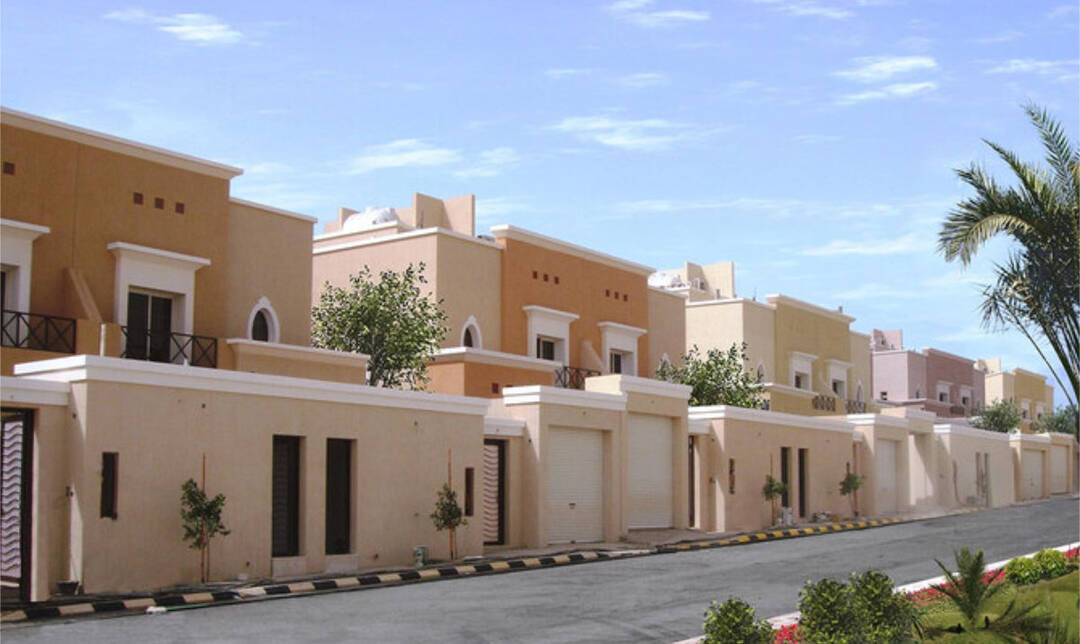Crown Prince Mohammed bin Salman has initiated transformative measures to stabilize Riyadh’s real estate market, responding to rising land, villa, apartment prices, and rental costs in the capital.
This follows a detailed study by the Royal Commission for Riyadh City and the Council of Economic and Development Affairs, which identified challenges preventing Saudi nationals from owning or renting homes.
The measures include easing land transaction and development restrictions in several areas of the city, allowing the sale, purchase, division, and subdivision of land, along with issuing building permits.
This aims to address the housing crisis, with 81.48 sq. km now available for development, including 48.28 sq. km where previous restrictions were lifted.
To meet rising housing demand, the government will supply 10,000 to 40,000 residential plots annually over the next five years. Priced at a maximum of SR1,500 ($400) per sq. meter, these plots will be available to married Saudi citizens or individuals over 25 who do not own property.
Strict regulations will prevent resale, rental, or mortgage for 10 years, except when used for construction financing. If the land remains undeveloped, ownership will revert to the government, and the buyer will be reimbursed.
The crown prince has directed the expedited release of proposed amendments to the White Land Tax Law within 60 days, aiming to foster the development of undeveloped land.
To ensure fairness in the rental market, new regulatory measures will be introduced within 90 days to balance the interests of landlords and tenants.
The General Authority for Real Estate and the Royal Commission for Riyadh City will closely monitor real estate prices, providing regular reports to assess the impact of these reforms and ensure long-term market stability.
This initiative underscores the Kingdom’s commitment to a more accessible, affordable, transparent, and sustainable real estate sector.
Ihsan A. Buhulaiga, founder of Joatha Business Development, mentioned in an article published by Maal Digital that Riyadh’s population has grown at an annual rate exceeding 5 percent, rising from 7.2 million in 2020 to 8.6 million in 2024.
This surge has increased demand for residential housing, fueled by thousands of Saudi nationals seeking employment in Riyadh and the relocation of around 600 foreign regional offices to the city.
As a result, a significant gap between housing supply and demand has led to a substantial rise in prices.
I firmly believe that the crown prince’s transformative initiatives will be key to stabilizing Riyadh’s real estate market by supporting the introduction of additional residential units and land plots.
These measures are also expected to narrow the gap between supply and demand for housing and land. Moreover, they should stabilize property prices, making land and housing more accessible and affordable for Saudi nationals.
Additionally, these measures are likely to lead to adjustments and corrections in real estate prices. They will also protect the rights of real estate owners, buyers, and tenants, ensuring a more balanced and transparent sector.
These transformative initiatives are expected to enhance the real estate market in Riyadh and beyond, fostering further investments and driving growth without causing disruption.
This will strengthen one of the Kingdom’s most vital economic sectors. As reported by Al Eqtisadiah newspaper, the real estate sector is the third-largest economic activity in the Kingdom, after oil and gas, and serves as a major driver of employment, particularly through construction-related efforts.
Finally, these measures will support the Saudi government’s goal of achieving 70 percent homeownership for citizens by 2030, in line with the Kingdom's Vision 2030.
• Talat Zaki Hafiz is an economist and financial analyst.
X: @TalatHafiz












